Sportsman’s Corner-Talking turkey
| Published: 03-09-2023 4:34 PM |
By Mike Roche
The recent return of “the winter that never came” has been a bit of a disappointment to many folks in the North Quabbin Region. A lot of us were eagerly looking forward to spring and it seemed to have arrived early. This present spate of cold weather, and the first real snow of the winter, has been a disappointment to some, but a boon to others. The cold nights and warm days have really gotten the sap flowing in the maple trees and locals who tap trees for sugaring to produce delicious maple syrup have been busy. That means long days collecting the sap and then boiling it down. It is a truly a labor of love as it is really hard work, but the reward is a product we all love.
The early signs of spring, like migrating waterfowl and returning songbirds, have been noticed and several people told me that the unique sound of male red-winged blackbirds is a harbinger of spring that they enjoy hearing. On my recent trip to Illinois, there was an encounter with a flock of over 100 of them that could be heard a long way away from the riverbank trees where they were gathered.
Wild turkeys are another visible reminder. The toms are ready for the spring mating season, as they are displaying around groups of hens. Their tails fan and their heads become bright red when they fill with blood as they strut and gobble. The hens at this time are not interested and go about their feeding undistracted by the gobblers. That will change in a month or so and hens will become receptive as the flocks break up. The males have their own hierarchy and the first-year males, called jakes, will tend to group up in small gangs and try to get in on the action. The mature toms will sometimes travel in pairs or trios but there will always be one “boss” gobbler who will defend his group of hens. That sometimes results in sparring as they use their spurs and even wrap their necks around each other when fighting. Boys will be boys!
The late snow really does not impact anything except some adjustments to finding food. Everything will happen as it has for a long time, particularly since the reintroduction of wild turkeys to Massachusetts. The last turkey in the state was killed on Mount Tom in 1851. In 1972 MassWildlife—then known as the Massachusetts Division of Fisheries and Wildlife—began the process of bringing turkeys back by live-trapping them in New York, where they were plentiful, and releasing them in suitable habitats in Massachusetts.
Some of the early stockings were in the North Quabbin Region, particularly Quabbin, and eventually the birds repopulated to the point where a hunting season was instituted in 1980. During the first year of hunting there were two seasons, and you needed a permit for one of them. The first segment was one week and the second two. Over time the turkey population has grown and now the season for all who apply for a permit runs four weeks—this year from April 24-May 20. There is a Youth Turkey Hunt with special regulations on April 22. You can find all the rules and regulations that pertain to turkey hunting in the Massachusetts Hunting and Fishing abstracts or online at masswildlife.org.
The most important thing to always keep in mind in all hunting—but particularly turkey hunting—is safety. In hunting turkeys, you make yourself invisible by wearing camouflage and imitate the game you’re hunting. All hunters should make themselves familiar with the Ten Commandments of Turkey Hunting which lays out the practices to keep everyone safe. Historically, hunting is extremely safe. As a matter of fact it is one of the safest outdoor activities, but turkey hunting has inherent risks that must be addressed. Never wear anything red, blue, or white and make sure of your target. Studies of turkey hunting incidents have shown that experienced hunters can make errors when they do not make absolutely sure of their target.
To me and many other hunters, the resounding sound of a gobble is well worth getting up at 4 a.m. to experience. Pre-season scouting and preparation includes going out pre-dawn and dusk to listen for gobbles from roosted toms. That is almost as much fun as the hunt and you also get an idea where a gobbler is roosted, The “perfect hunt” is setting up and calling the bird in when he pitches down from the roost.
Article continues after...
Yesterday's Most Read Articles
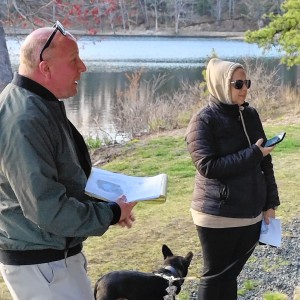 Plan calls for upgrades to Silver Lake in Athol
Plan calls for upgrades to Silver Lake in Athol
 Magic comes to Red Apple in Phillipston
Magic comes to Red Apple in Phillipston
 Parents question handling of threat at Erving Elementary School
Parents question handling of threat at Erving Elementary School
 On The Ridge with Joe Judd: What time should you turkey hunt?
On The Ridge with Joe Judd: What time should you turkey hunt?
 Erving rejects trade school’s incomplete proposal for mill reuse
Erving rejects trade school’s incomplete proposal for mill reuse
 Orange man gets 12 to 14 years for child rape
Orange man gets 12 to 14 years for child rape
This writer has his airline ticket to fly to Kansas again this year to “visit my sister,” who loves in Leavenworth. That visit will incidentally coincide with the opening of the Kansas turkey season. Kansas, like a number of states in the south and Midwest, has adjusted turkey bag limits in response to a decrease in turkey numbers. Biologists are trying to determine what is responsible for the decline but the two-gobbler limit is now one. Can’t wait!
Tom Ricardi is well known for his work with birds of prey. So many of us have enjoyed his presentations with live birds of prey. His raptor rehabilitation center recently was damaged during a storm and is need of repair. I encourage you to send a contribution to help rebuild the facility at :Birds of Prey Raptor Rehabilitation Center, P. O. Box 26, Conway, MA 01341. Your donation is tax-deductible. A GoFundMe page has also been set up.
Mike Roche is a retired teacher who has been involved in conservation and wildlife issues his entire life. He has written the Sportsman’s Corner since 1984 and has served as advisor to the MaharFish’N Game Club, Counselor and Director of the Massachusetts Conservation Camp, former Connecticut Valley District representative on the Massachusetts Fisheries and Wildlife Board, has been a Massachusetts Hunter Education Instructor and is a licensed New York hunting guide. He can be reached at mikeroche3@msn.com.
]]>

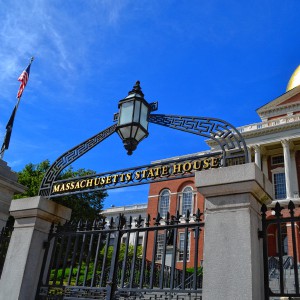 Over $400M in shelter funding, new limits approved
Over $400M in shelter funding, new limits approved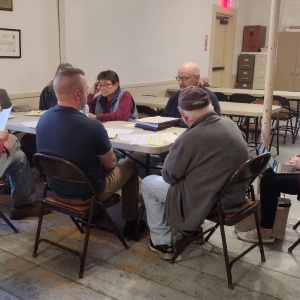 Royalston’s FinCom debates proposed salary increases
Royalston’s FinCom debates proposed salary increases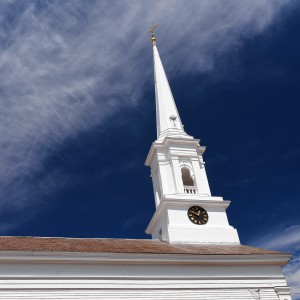 PHOTO: Spectacular spire
PHOTO: Spectacular spire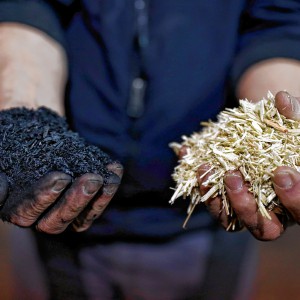 Locking up carbon for good: Easthampton inventor’s CO2 removal system turns biomass into biochar
Locking up carbon for good: Easthampton inventor’s CO2 removal system turns biomass into biochar